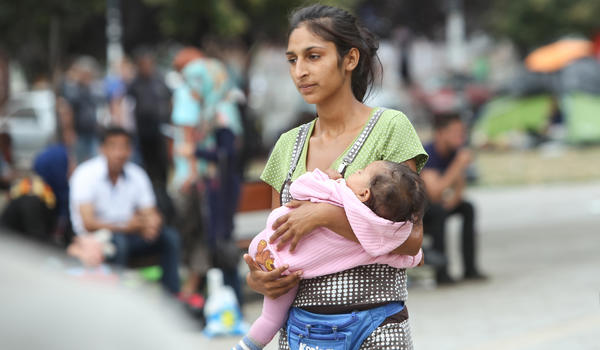My research interests are in humanitarian operations, so specifically, looking at what major international humanitarian organisations do in order to deliver humanitarian assistance in conflict settings, and political crisis settings as well. So, for humanitarian logistics, the concern is getting the right supplies to the right places at the right time, and in the right quantity. So ideally, you want to serve all the people who have the need. And so, the challenges usually relate to how you can get the goods through safely to these places. If you have what we call internally displaced people, and they tend to be the bulk of people who need humanitarian assistance.
There are several things that I look at in my work. The biggest one relates to being able to deliver at the end of the day.
So, the decision parameters or what kinds of decisions have to be made, or what sort of things have to be taken into account when making decisions are some of the important things that I look at.
Though, as an example, if you are going to work in any country, one of the first things that you have to understand is what kind of host government are you dealing with? What sort of regulations are they going to impose, and for what reasons? And this understanding is going to have implications. For example, how far into the future you can plan. So, do you plan a couple of months at a time? Can you plan for an entire year? You also have to think about what tends to happen in those countries outside of the main disaster that brings you there.
So, if you are there for the sake of conflict, but there's also a tendency for drought and flooding, then you also have to think about these additional humanitarian requirements and how you can set up your supply chain and systems in such a way that they can flexibly adapt and increase capacity as needed, but also be able to quickly scale down when those needs disappear.
The impact of my work is something that remains to be seen.
So the biggest issues, I think, relate to having this systematic understanding of what the key issues are and what we can already adopt from well-established operations management, supply chain management, theories and concepts.
There's also the non-typical ways of working, or the additional considerations that have to be made. So in the humanitarian setting, for example, we know now that the identity of an organisation matters not only for the types of decisions that it can make, but also how it can be perceived by different stakeholders who can affect the ability of that organisation to deliver. Based on this, humanitarian organisations do have to be mindful of how they are perceived, and how that is going to affect how much independence and freedom they have when making decisions about logistics and supply chain management.
We need more people to get involved in this type of research. I think until COVID, there was a belief that humanitarian logistics or humanitarian operations research was for a specific niche, so humanitarian problems only. But as we have seen from COVID-19, and also this conflict now in Ukraine, the types of issues that these organisations have to deal with will affect pretty much anyone in any sector, and so it becomes a rich context for exploring things that we don't know, that we have not experienced before, and for thinking more proactively about how we could adapt and be ready for whatever the future brings.
So, I think most researchers will agree that we haven't seen the worst of what can happen. There will be more uncertainty. There will be more things that we haven't experienced before. But most of what we have seen unfold during the COVID-19 pandemic, and also in this invasion of Ukraine, we have already seen in some way, shape or form in the humanitarian sector. So, it's a great opportunity to learn about what the future could look like, and be prepared for it.


































